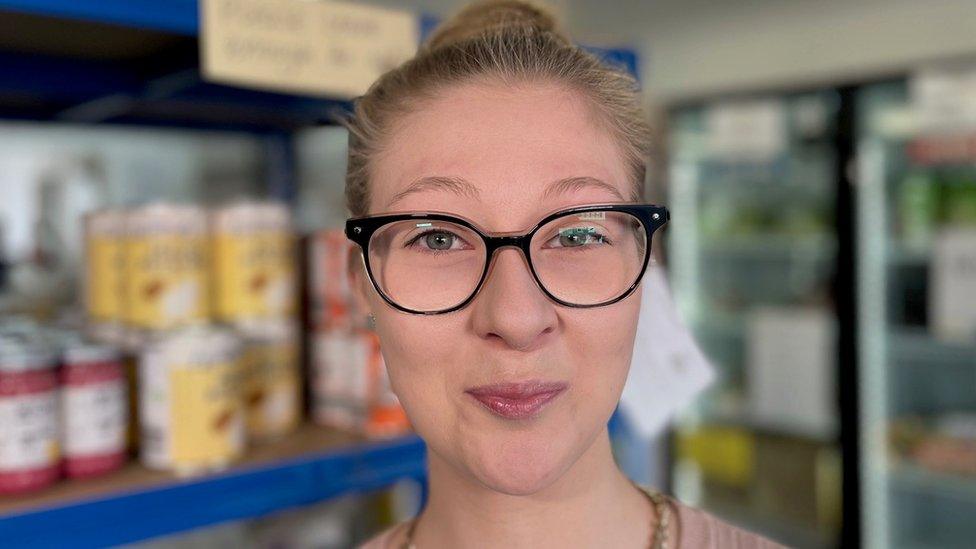'It's tougher than ever to be a comedian'
- Published
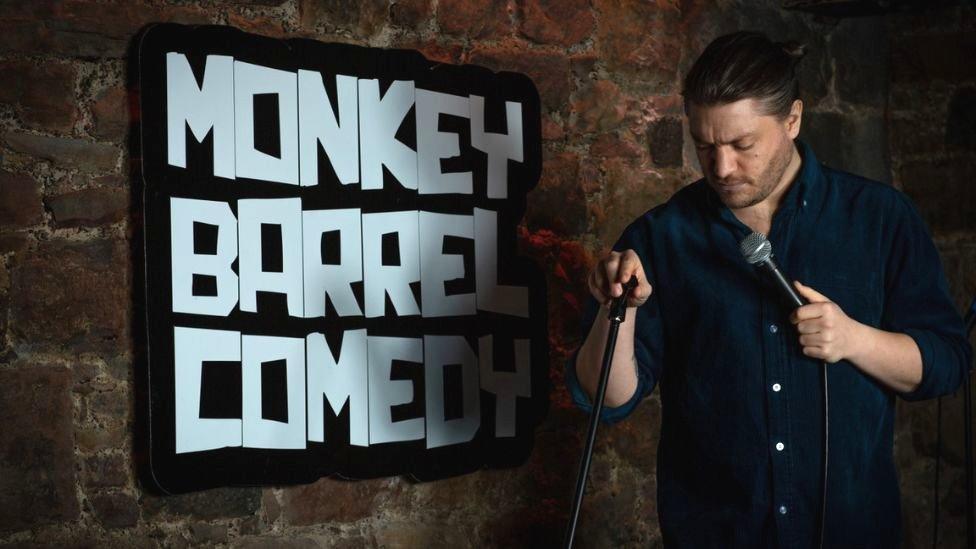
Comedian Liam Withnail has performed at the Monkey Barrel, which has put on extra shows amid the cost of living crisis
Even for comedians, the cost of living crisis is no laughing matter.
Soaring travel costs, unaffordable accommodation, stagnant fees and cash-strapped audiences have made it harder than ever to make a living on stage, BBC Scotland has been told.
And with inflation unexpectedly rising to a 45-year high of 10.4% in February, the outlook is even bleaker.
As performers gathered for the Glasgow International Comedy Festival, they spoke about how the industry was faring.
Edinburgh-based comedian Liam Withnail said hotel prices had "gone absolutely insane" since the pandemic, while return tickets to perform at gigs in England can cost about £200.
He told BBC Scotland he was turning down shows in Manchester and London because the costs were too high - and because performance fees had remained flat for years.
"It's got to the point where I'm financially better off not working than I am some nights," the stand-up said.
Withnail, who has been a professional comedian for 10 years, added: "It's tough and it's tougher now than ever."
He echoed fears, aired earlier this year by Richard Herring, that the profession is becoming increasingly closed off to people from less privileged backgrounds.
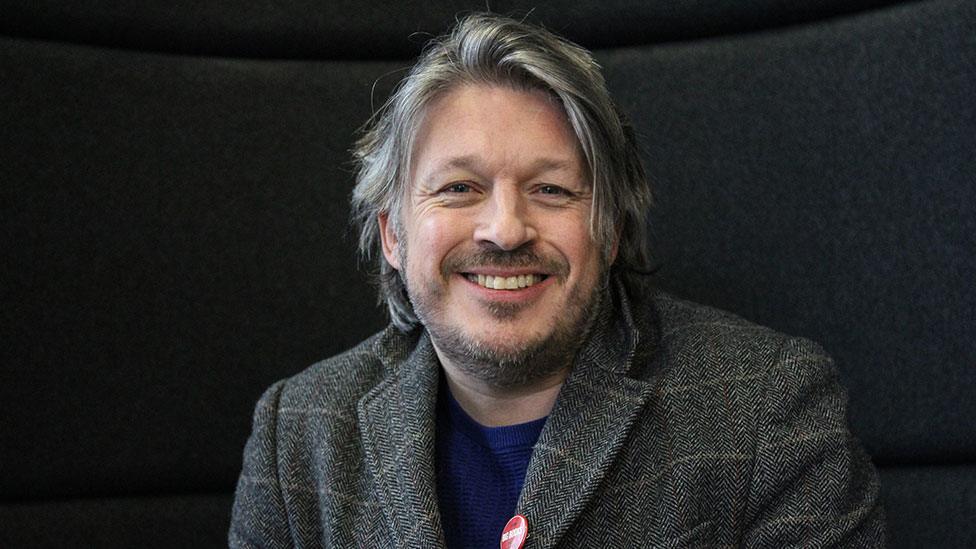
Comedian Richard Herring has expressed concerns about the Edinburgh Fringe
Withnail predicted that the long-term effect would be "devastating" for the industry, with the "overwhelming majority" of performers he knows deciding to stay away from this year's Edinburgh Fringe due to the expense.
"The Edinburgh Fringe will slowly lose everything that's good about it and become a playground for the children of millionaires," the comedian warned.
Yet with the gloom comes a desire to escape it, Withnail said.
"People need a laugh and they want to come out and it's a good way to socialise and to either forget or see the world in a new and funny light," he added.
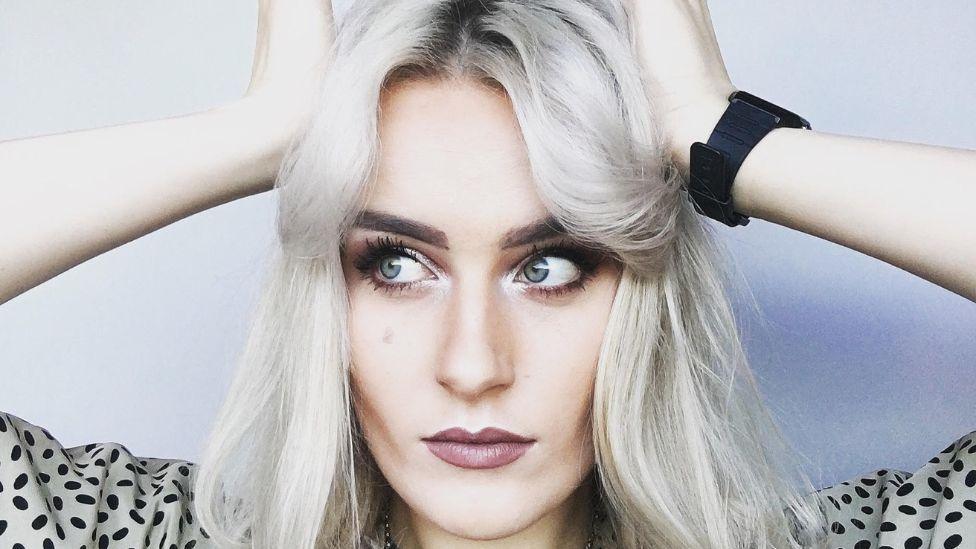
Amy Matthews warned that barriers were being put up to people from less privileged backgrounds
Amy Matthews, has also had to turn down gigs in England due to the cost of rail travel from Scotland.
"It just means that line-ups will become less interesting, less diverse if they can only draw on the talent that's on someone's doorstep," she said.
Matthews warned that barriers were being put up to people from less privileged backgrounds.
"That has historically always been the case, but it's obviously been brought into stark relief in the cost of living crisis," she said.
Venues, too, are struggling to make ends meet as Scots are forced to reign in their spending.
Analysis of YouGov polling by Citizens Advice Scotland (CAS), published in January, external, suggested nearly half (48%) of Scots had cut back on household spending due to energy costs. Two in three (66%) of those who have reduced spending have cut back on eating or drinking out, CAS said.
One comedy venue that has been praised for helping comedians amid the cost of living crisis is the Monkey Barrel in Edinburgh, which has put on extra shows since reopening during the pandemic.
"I think there's no other comedy club in Scotland doing what we do - it's putting a lot of money into people's pockets," director David Bleese said.
'We can't keep up'
His club puts on up to six shows a night, with audiences of up to 155 people. Tickets range from £5 to £15 at weekends, as well as pay-what-you-like performances.
Bleese said the club had also adapted to modern demands, setting up its own podcast studio and broadcasting more shows online.
However, he added: "What we can't really keep up with is the cost of accommodation and the cost of travel.
"People are making the choice not to come up to Edinburgh outside of August - well, people are making the decision not to come to Edinburgh in August."
To help performers during the Fringe, The Stand has announced it will scrap all venue hire fees and split takings between the acts and the venue, weighted in the favour of acts.
Managing director Mike Jones said: "The Stand is about a fair deal for performers, fair prices for audiences and fair work for our staff. This year we've decided to drop venue hire costs for acts to make it more affordable to come to the Fringe and have not increased our ticket prices."
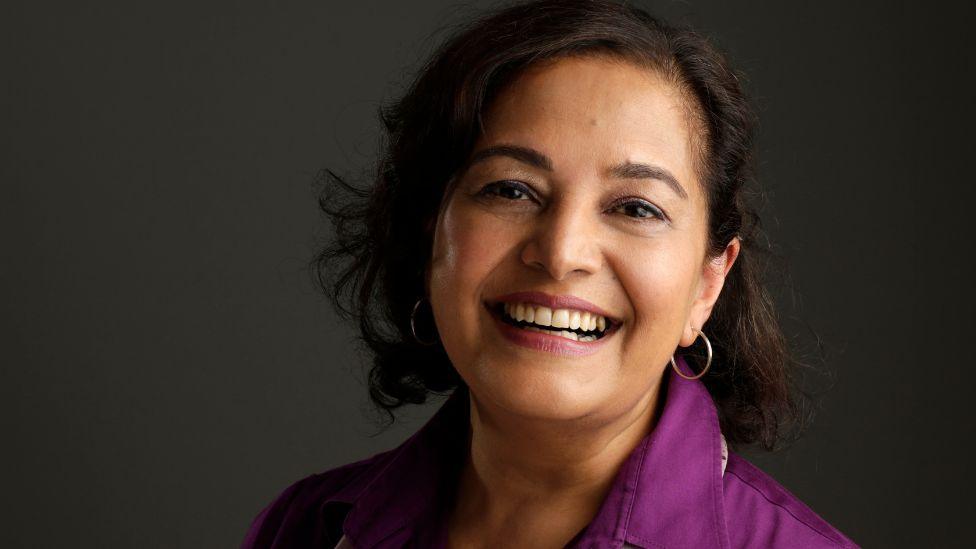
Lubna Kerr said she could not survive without her second job
Glaswegian comedian Lubna Kerr, who also works one day a week with the NHS, said she would not able to survive financially without her second job.
Kerr, whose latest show is a one-woman play in Scots-English and Urdu about two Scottish-Pakistani women, explained that getting well-paid work in an industry which had traditionally been dominated by white men was "not easy".
"Especially when you're an older Pakistani women," she said.
Kerr told BBC Scotland it was "not enough to make people laugh" amid the cost of living crisis, "because being a comedian is a business and you are the business, you're the product, you need to market yourself".
She added: "Scotland's got such a rich history of comedians and it would be a shame if it was only the rich that were able to do it. But I think where there's a will there's a way."
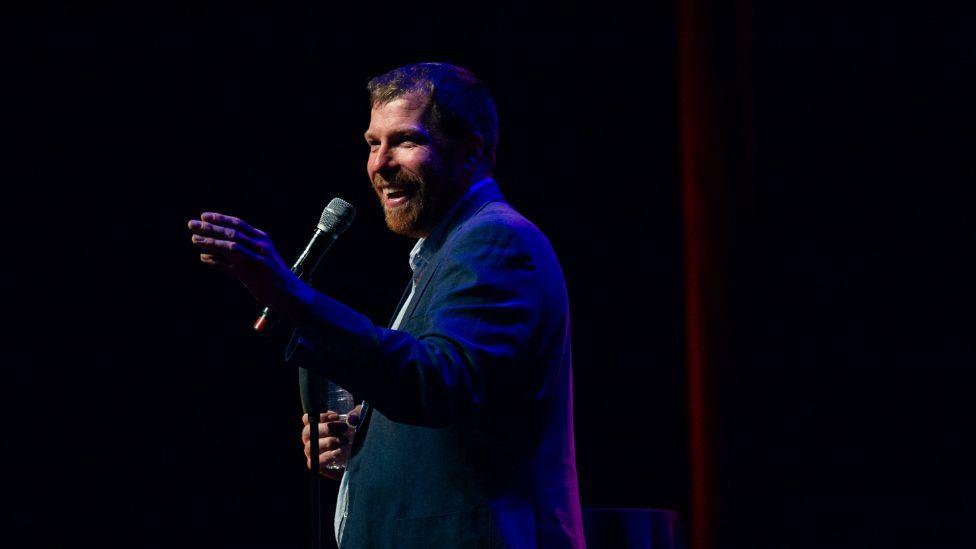
Jim Smith said it would be a "tragedy" if comedy became closed off to people from all backgrounds
Jim Smith combines his comedy career with running a farm in Perthshire. He spoke to BBC Scotland as he juggled lambing season with a comedy tour.
Tickets selling well has been a "lifesaver," he said as fuel, food, travel and accommodation costs "go mental".
Smith has worked with the RSABI, a charity which provides practical and emotional support to people living in rural Scotland. He has seen how financial pressure can affect the mental health of farmers.
'Funny's funny'
The comedian has seen some similarities in stand-up. "Comedians you expect in the green room to be happy, jolly people but they can be quite serious and quiet.
"Then they go on stage and flick a switch and that's their act," he said. "It can be a lonely experience."
Such issues have only been "compounded" by fears about the cost of living, Smith added.
The stand-up also warned it would be a "tragedy" if comedy became closed off to people from all backgrounds due to costs.
But he added: "All you need to own in life is a pen and paper and a good imagination to get a start.
"Funny's funny and the cream always rises. If you're funny, consistently funny, you will make it to the top."
- Published1 February 2023
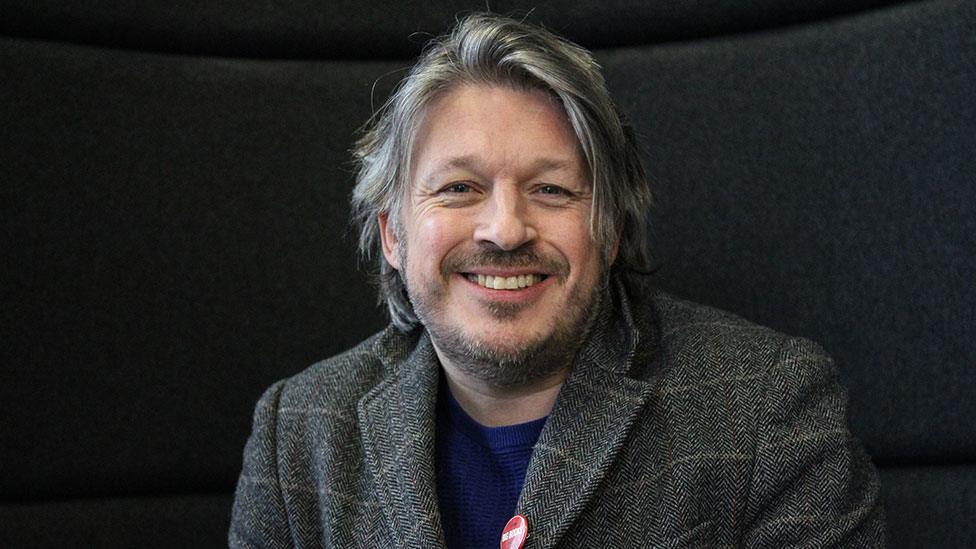
- Published15 August 2022
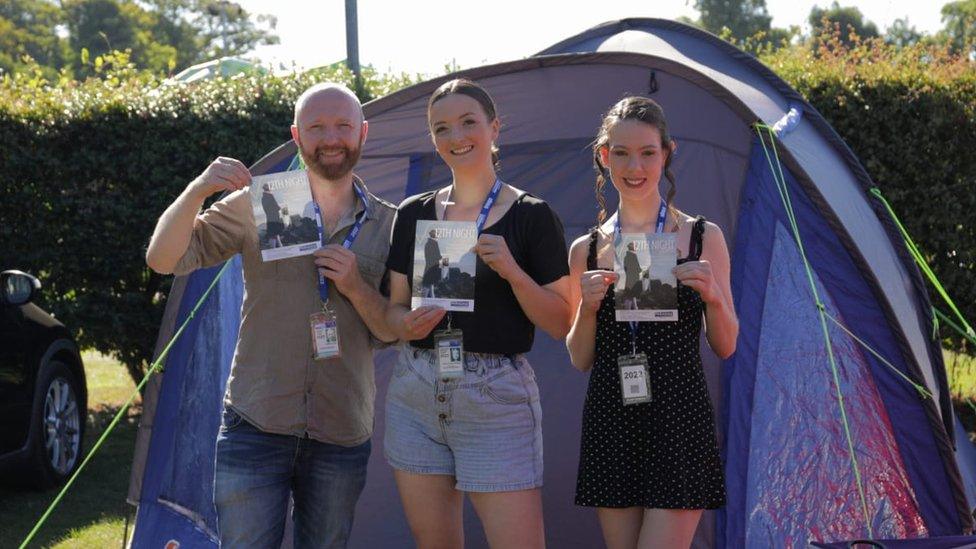
- Published17 March 2023
